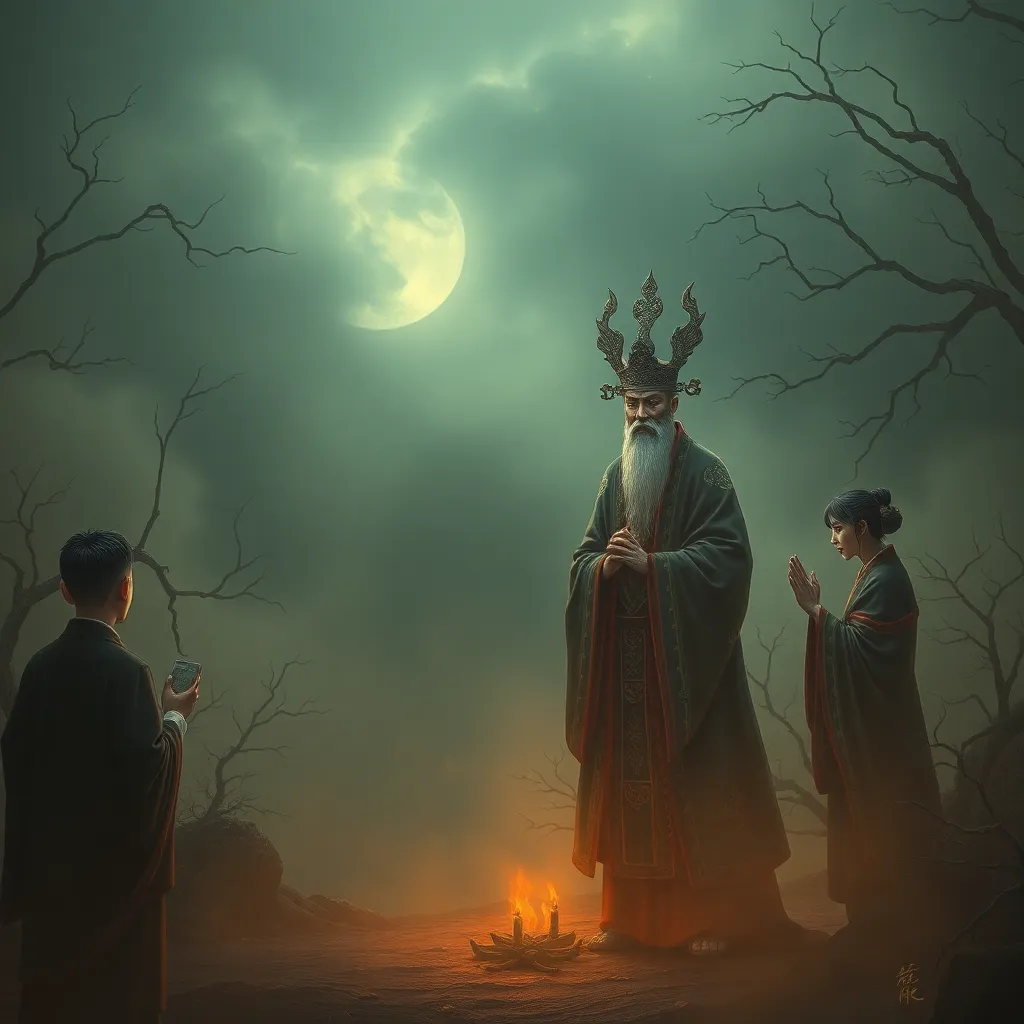The Spirit of the Ancestors: Examining the Impact of Chinese Yurei on Family Lineage
I. Introduction
In Chinese culture, the concept of Yurei refers to the spirits of the deceased who play a significant role in the lives of their living relatives. These spirits are believed to hover around their families, influencing their daily lives and decisions. The practice of ancestor worship is deeply rooted in Chinese tradition, showcasing the respect and reverence that families hold for their forebears.
This article will explore the impact of Yurei on family lineage, examining how these ancestral spirits shape familial bonds, influence decision-making, and preserve cultural values across generations.
II. Historical Context of Yurei in Chinese Society
The origins of Yurei beliefs can be traced back thousands of years, intertwined with the evolution of Chinese spirituality and philosophy. Initially, these beliefs were largely influenced by animism and ancestor worship, where ancestors were viewed as protectors and guides. Over time, Yurei became a significant aspect of various Chinese religions, including Taoism and Buddhism.
The role of Yurei in traditional Chinese spirituality is pivotal, as these spirits are viewed not just as remnants of the past but as active participants in the lives of the living. The cultural significance of ancestors is profound; they are considered the source of family identity and continuity.
III. The Beliefs and Practices Surrounding Yurei
Honoring Yurei is central to maintaining familial ties and traditions. Common rituals and ceremonies include:
- Qingming Festival: Families gather to clean graves and make offerings of food, incense, and paper money to their ancestors.
- Ancestor Tablets: These are often placed on family altars, representing the spirits of deceased relatives.
- Family Gatherings: During significant holidays, families come together to honor their Yurei through shared meals and prayers.
Practices honoring Yurei can vary significantly across different regions in China, with some communities placing greater emphasis on certain rituals than others. For example, in southern China, elaborate offerings may be made, while in northern regions, simpler practices may prevail.
The symbolism of offerings is rich; food represents nourishment, incense symbolizes prayers rising to the heavens, and ancestral tablets serve as a physical reminder of the lineage and connection to the past.
IV. The Psychological Impact of Yurei on Families
The influence of Yurei extends beyond rituals and traditions; ancestral spirits significantly impact familial decision-making. Many families consult their ancestors, seeking guidance on important life choices such as marriage, career paths, and health matters.
Yurei also play a crucial role in shaping family identity and values. The stories and teachings of ancestors are passed down, instilling a sense of pride and responsibility in descendants. Emotional connections between living relatives and their Yurei foster a strong sense of belonging and continuity within the family unit.
V. Yurei and the Concept of Filial Piety
Filial piety, a cornerstone of Confucian thought, emphasizes respect, obedience, and care for one’s parents and ancestors. The relationship between Yurei and the obligation to honor ancestors is profound; honoring Yurei is seen as an extension of filial piety.
Case studies illustrate how Yurei beliefs reinforce familial duties. For instance, individuals may feel compelled to pursue specific careers or live in certain locations to honor the wishes of their ancestors, demonstrating the weight of ancestral expectations in their lives.
VI. Modern Interpretations and Adaptations of Yurei
As contemporary Chinese society evolves, so too do beliefs surrounding Yurei. Many young people find themselves balancing traditional practices with modern lifestyles. While some may abandon these rituals, others work to adapt them, finding new ways to honor their ancestors.
The impact of globalization and modernization poses challenges to ancestral practices, yet it also creates opportunities for revival. In urban areas, for instance, families are finding innovative ways to celebrate traditions, such as virtual memorials or community gatherings that blend modern technology with ancient customs.
VII. The Role of Yurei in Family Lineage and Legacy
Yurei beliefs significantly affect inheritance and familial connections. In many families, the distribution of inheritance is not just about material wealth but also about honoring the wishes of ancestors. This can lead to complex dynamics in family relationships, where loyalty to Yurei influences decisions on property and resources.
The impact of Yurei on the transmission of cultural values is undeniable. Descendants often feel a sense of duty to uphold traditions and values instilled by their ancestors, ensuring that their legacies continue. Perspectives from descendants reveal a rich tapestry of emotions tied to their ancestral legacies, with many expressing pride in their heritage and a commitment to preserving it for future generations.
VIII. Conclusion
In conclusion, the examination of Yurei in Chinese culture reveals a profound connection between ancestors and contemporary family dynamics. From historical contexts to modern adaptations, Yurei influence shapes the identities, values, and decisions of families across generations.
The enduring significance of Yurei in family lineage highlights the importance of honoring our ancestors, as their spirits continue to guide and inspire us. Ultimately, the relationship between the living and the Yurei remains a vital aspect of Chinese culture, reflecting the deep-rooted respect for those who came before us.



